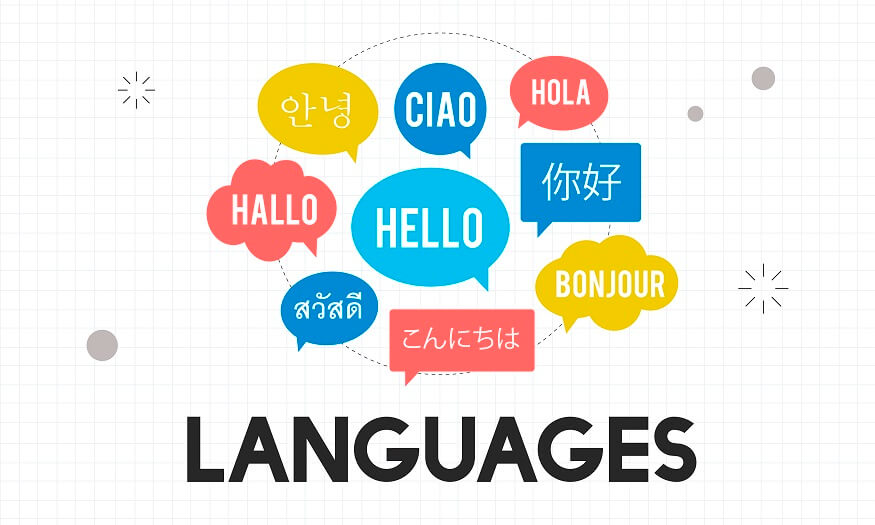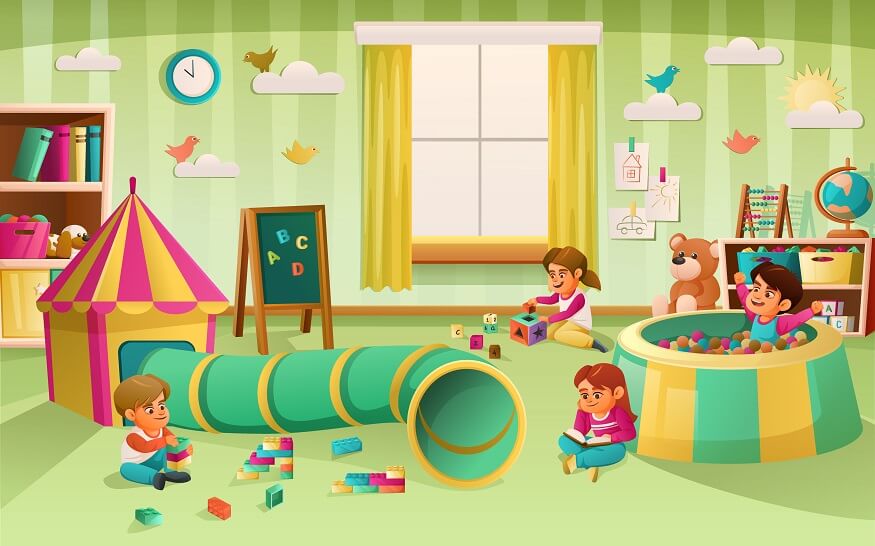Language is a critical means of communication and exchange of ideas between individuals. Most children are taught their native language or mother tongue as their first language. This is the language they speak at home with their parents and usually with their friends. So if a child is born in France, it is likely that her first language will be French and then she might choose to learn English (or any other language) as a second language. The same applies to most countries abroad. India with its multi-lingual diversity is a different case in point. While there are thousands of languages and dialects spoken in India, there are 22 scheduled languages which are extensively spoken in India.
To address this diversity, CBSE, the largest Indian education board, has standardised English as the mandatory first language for all. Children are then introduced to a second language in school and some cases an optional third language. The second language in most cases is Hindi and the third language is usually the regional language of the state in which the school is located. Most schools however give students options to choose the third language of their choice.
Also Read: 15 Dual Language Learning Books for Children
Learning a new language is not just about being able to communicate with a larger audience. It has many more benefits to developing the holistic personality of children. This blog presents some such benefits of learning a second language as a child.
Improves grasping power
While the first (native) language comes naturally to us, learning a second language exercises our brains. Learning a new language is a tedious task for the brain. A new language introduces new alphabets, new phonetics, new ways of sentence structuring and formations, etc. Going through this motion while learning a new language activates and energises our brains thus enhancing our ability to grasp new concepts faster and easier. This development rubs off on other subjects and concepts children are learning at school.
Develops problem-solving skills
The brain workout that children experience while learning a new language also helps in improving their cognitive and problem-solving skills. Learning a new language develops new ways of looking at things. This helps children better analyse complex problems and look at creative ways of solving the same. Various studies have established the influence of learning a new language on improving the cognitive and problem-solving skills of children.
Improves Creativity
There is nothing more creative than finding an entirely new way to communicate – a new language. Learning a new language has been seen to elevate creativity in children. Various studies have established this positive relationship. The sections of the brain activated while learning a new language also activates our creative side. Children who know more languages are often seen to be more creative than their other peers.
Opens up career opportunities
Learning a new language, especially an international language such as French or German can open up new career opportunities for children in the future. As the world is opening up for business without any borders, we are increasingly seeing a globally fungible workforce. Employees working in multinational companies frequently move across the globe for work. In such cases, language is the only key hindrance. Learning a new language can overcome this barrier and position students better for such global assignments. It could be Indian companies working with global clients, or even foreign companies operating in India. Learning their language can be of great advantage in career progression for the future.
Also Read: What are the advantages of learning German?
Builds personal brand
Knowing more languages is also seen as a symbol of a high level of elite education. Those who know more languages are usually looked up to more than others. Such individuals are perceived as learned and knowledgeable. They are respected and revered in society. Learning a new language also symbolises the effort one has invested to converse or do business with those who speak that language. For example, an American businessman setting up business in India conversing in Hindi sends out a strong signal of his commitment to their business and customers in India. Learning new languages is a great step towards becoming a truly global citizen.
Expands networking opportunities
Learning a new language opens up a medium of expression to a whole new population that converses in that language. For example, learning French can open up avenues for an individual to network and initiate conversations with close to 100 million individuals around the world who speak French. This opens up fresh avenues to exchange ideas and collaborate with a whole new bunch of people.
Exposure to new cultures and ideas
Not just new individuals, but learning a new language can also expand our exposure to newer cultures and newer ideas. Language is the mirror of their native cultures. By being able to converse in Japanese, we can know more about Japanese cultures, philosophies, knowledge base, traditions, etc. It can be a great source of sneak peek into Japanese culture. For individuals or businesses keen on manufacturing or doing business in Japan, it could be a great source of ideas and inspiration to learn from Japanese manufacturing techniques and practices.
Enhances joys of travel
Exposure to new people, cultures and ideas also enhances the joys of travel for bilingual individuals. For example, knowing English in addition to your native language can make travel across India a lot more convenient and fun for any Indian citizen. Similarly, knowing Russian for example can be of great value while travelling across Europe as it is the most spoken language in Europe. Knowing the local language makes it easy to navigate around and also to immerse yourself better in the local culture.
Also Read: Benefits of learning a second language in a child’s development
Increases Tolerance
Learning a second language exposes us to newer traditions, beliefs, and cultures. This helps us in increasing our tolerance and respect for cultures that might seem inherently foreign to us. This immersion into newer cultures increases our tolerance for those cultures as now we are better positioned to understand the reason and logic behind those cultural traditions and beliefs. Any language carries with it the historical evolution of an entire civilisation. The language evolves along with civilization. Learning the language builds empathy towards that particular civilisation and provides us with deep knowledge of the fundamentals of cultural formation. It positions us better to respect those civilisations, their citizens, their traditions, and their cultural beliefs, truly making us global citizens.










